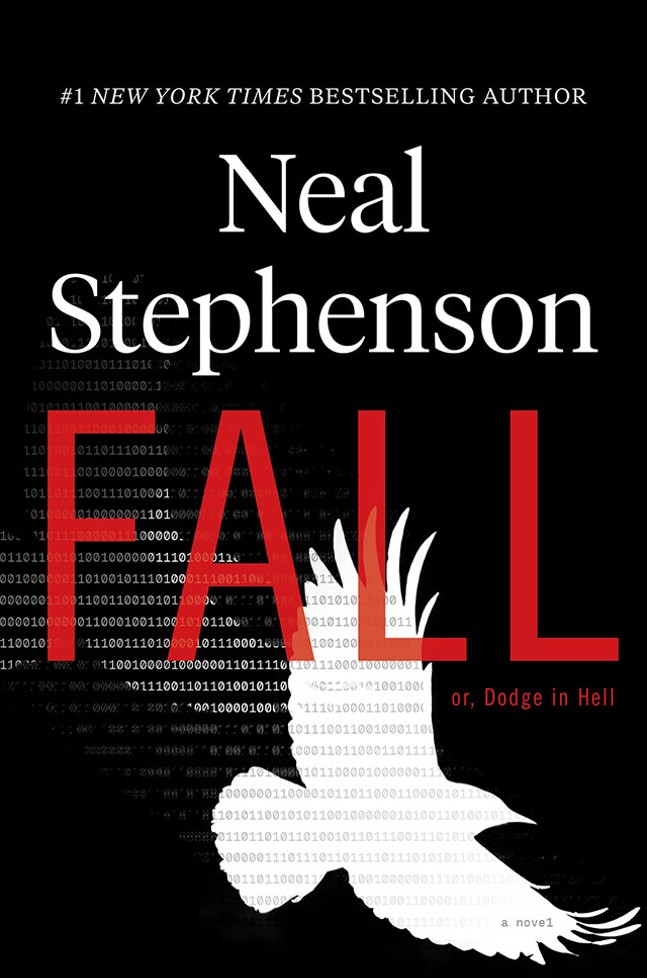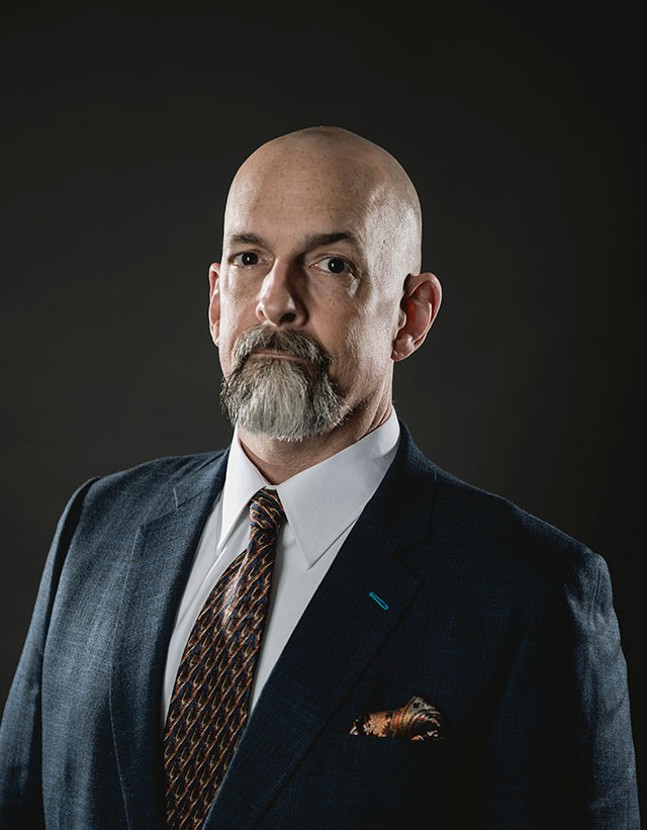Neal Stephenson has explored cryptography, linguistics, space travel, and other complex ideas in his books and writing. He's penned articles or consulted on geoengineering, numerical analysis, atrocity prevention, and transmedia projects. Fall; Or, Dodge in Hell, (William Morrow), Stephenson's mammoth new novel (883 pages), involves parallel worlds, consciousness after death, cryonics, and myriad other speculative themes.
But the Seattle-based writer, who appears June 17 at Carnegie Library Lecture Hall in Oakland as a guest of Pittsburgh Arts & Lectures, has one Luddite-like tendency: He doesn't read his email.
“There's this asymmetry that kicks in where people are reading your stuff and sending you personal communications,” says Stephenson, noting his self-description as a “sociomediapath.”
“It doesn't scale beyond a certain point. I can easily spend every working hour just reading and responding to incoming communications from individual people, and that would mean never writing another book. I assume that the majority of people who are sending those communications would prefer that I keep writing books. That's why I don't read and respond to incoming email.”
Fall … starts with the death of Richard “Dodge” Forthrast (who appeared in a previous Stephenson novel, Reamde), a billionaire owner of a gaming company, during a routine medical procedure. His will directs that his body be stored by a cryonics company, and Dodge's brain is scanned, uploaded, and stored in the cloud until it can be revived.
When Forthrast's brain regains consciousness, it starts to fashion a version of an afterlife, known as Bitspace, populated by digital souls. Residents of Earth — increasingly called Meatspace — become addicted to events in the parallel world in the same way the internet and social media command attention. The companies who own such sites track every move.
“They don't know what you're thinking, but they can make a pretty good guess based on where your mouse hovers,” he says. “Even if you don't click on something, they know what you thought about clicking on. They know which items you looked at for a while and what you looked past. And all of that information can be used to craft an experience on to that social media site that is tuned to make you want to stay there and click more and see more. There's a feedback loop that gets going that can be very powerful.”
Stephenson, whose previous works include Cryptonomicon, the three-volume Baroque Cycle (winner of the Locus SF Award), and Hugo Award-winner Seveneves, had finished a section of the novel about a cataclysmic hoax prior to the 2016 election cycle. Then the idea of fake news took hold. “I thought I was being very forward-leaning and clever,” Stephenson says, “and then, of course, I was overtaken by events.”
That passage had to be re-written lest it seem that he was mimicking reality. “There are a number of other science fiction writers in the last few years who are saying similar things,” Stephenson says. “Here we thought we were way out in front of things, writing a wild, crazy, speculative future, and we're actually lagging behind. I had to re-work that section pretty extensively because it seemed obvious.”
One element of Stephenson's work that might not seem obvious is his penchant for writing strong female characters, especially in his last three novels: Reamde, Seveneves, and Fall; Or, Dodge in Hell. But when asked if there's a strain of feminism running through his work, Stephenson demurs.
“I think that people automatically start to put up defenses against any book or work of art they sense has an ax to grind or a specific message,” he says. “I try to avoid being overt in that way. So, to me, it's just a reflection of the reality I see around me, and the people I know in my life. I'm certainly not setting out to make a statement that way. It's just a question of seeing reality fully and then to depict it.”
Between the Lines
Poets Angele Ellis and Paola Corso will read Sat., June 15 in a benefit for the Friendship Community Group. There will also be a raffle, refreshments, and books and other items for sale. 4 Clarendon Place, Friendship. Search "Reading to benefit Friendship" on Facebook.



